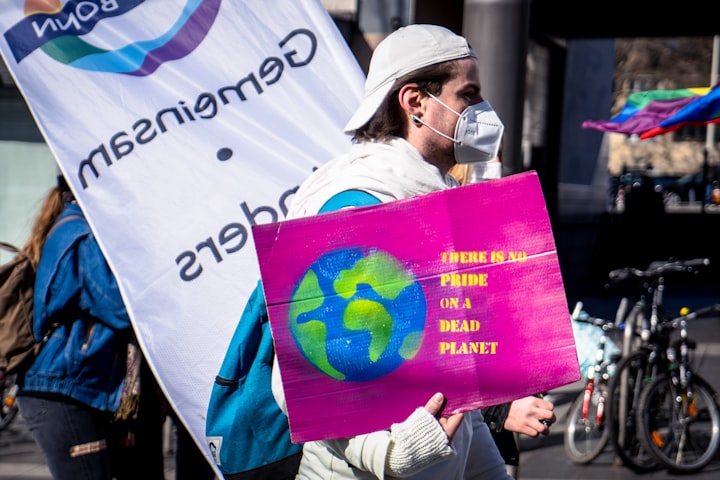Climate Change and Public Health
Understanding the Connection

Climate Change and Public Health: Understanding the Connection
Climate change and public health are two global issues that are intricately connected. Climate change is the long-term alteration in the Earth's climate system caused by human activities, primarily the emission of greenhouse gases. Public health refers to the science and art of preventing disease, prolonging life, and promoting health through organized efforts of society. The connection between climate change and public health is complex and multifaceted. In this article, we will explore this connection and understand its impact on our lives.
The Connection between Climate Change and Public Health
Climate change affects public health in multiple ways. The warming of the planet has resulted in a rise in temperature, which in turn has caused changes in weather patterns. These changes in weather patterns have led to an increase in extreme weather events like hurricanes, cyclones, floods, and droughts. These extreme weather events can have a significant impact on public health.
The rise in temperature also contributes to the spread of vector-borne diseases like malaria, dengue fever, and Zika virus. Warmer temperatures allow mosquitoes and ticks to survive and reproduce in new areas, resulting in the spread of diseases to areas where they were not previously found. Heatwaves can also cause heatstroke, dehydration, and other heat-related illnesses, especially in vulnerable populations such as the elderly, children, and those with pre-existing health conditions.
Climate change can also impact air quality, which can have serious implications for public health. Rising temperatures and changing weather patterns can increase the frequency and severity of wildfires, which can release harmful pollutants into the air. In addition, increased use of air conditioning and transportation can also contribute to air pollution. Poor air quality can lead to respiratory illnesses, such as asthma and chronic obstructive pulmonary disease (COPD).
Another way that climate change can impact public health is through its effect on water quality. Extreme weather events like floods and storms can lead to contamination of drinking water sources. This can result in waterborne diseases like cholera and dysentery, which can have serious health consequences, particularly for vulnerable populations like children and those with compromised immune systems.
Understanding the Impact on Vulnerable Populations
Climate change affects different populations differently, with vulnerable populations being the most impacted. These populations include children, the elderly, those with pre-existing health conditions, and low-income communities. Children are particularly vulnerable to the impacts of climate change as their bodies are still developing and they have a higher susceptibility to diseases.
The elderly are also at increased risk as they may have pre-existing health conditions that make them more vulnerable to the effects of extreme weather events, heatwaves, and poor air quality. Low-income communities may be more susceptible to the effects of climate change as they may have limited access to healthcare, live in areas prone to extreme weather events, and have limited resources to prepare for and respond to emergencies.
Understanding the Role of Public Health in Climate Change Mitigation
Public health has a critical role to play in mitigating the impacts of climate change. One way that public health can contribute to climate change mitigation is by promoting sustainable practices and behaviors. This can include promoting active transportation like walking and cycling, promoting the use of renewable energy sources, and reducing waste.
Another way that public health can contribute to climate change mitigation is by advocating for policies that address the root causes of climate change, such as reducing greenhouse gas emissions. This can include supporting policies that promote renewable energy, reduce transportation emissions, and regulate emissions from industry and agriculture.
Public health can also play a role in preparing for and responding to the impacts of climate change. This can include developing emergency response plans for extreme weather events, educating the public about the risks of extreme weather events, and ensuring that healthcare systems are prepared to respond to increased demand during times of crisis.
Conclusion
Climate change has significant impacts on public health, ranging from vector-borne diseases, air pollution, and water contamination to extreme weather events, heatwaves, and other climate-related health hazards. Vulnerable populations, such as children, the elderly, and low-income communities, are the most affected by these impacts.
Public health has an essential role to play in mitigating the impacts of climate change. By promoting sustainable practices and advocating for policies that reduce greenhouse gas emissions, public health can contribute to climate change mitigation. Public health can also prepare for and respond to the impacts of climate change by developing emergency response plans, educating the public, and ensuring that healthcare systems are prepared to respond to increased demand.
In conclusion, the connection between climate change and public health is complex and multifaceted. By understanding this connection and taking action to mitigate the impacts of climate change, we can protect the health and well-being of our communities, particularly those who are most vulnerable. It is crucial that we act now to address climate change and protect public health for generations to come.
About the Creator
HSE Insider
Join the HSE community and take your safety knowledge to the next level with “HSE Insider”
Follow us on social media and be sure to share with your network. Together, we can make the world a safer place.
Support HSE Insider today!






Comments
There are no comments for this story
Be the first to respond and start the conversation.